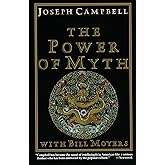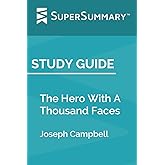
Enjoy fast, free delivery, exclusive deals, and award-winning movies & TV shows with Prime
Try Prime
and start saving today with fast, free delivery
Amazon Prime includes:
Fast, FREE Delivery is available to Prime members. To join, select "Try Amazon Prime and start saving today with Fast, FREE Delivery" below the Add to Cart button.
Amazon Prime members enjoy:- Cardmembers earn 5% Back at Amazon.com with a Prime Credit Card.
- Unlimited Free Two-Day Delivery
- Streaming of thousands of movies and TV shows with limited ads on Prime Video.
- A Kindle book to borrow for free each month - with no due dates
- Listen to over 2 million songs and hundreds of playlists
- Unlimited photo storage with anywhere access
Important: Your credit card will NOT be charged when you start your free trial or if you cancel during the trial period. If you're happy with Amazon Prime, do nothing. At the end of the free trial, your membership will automatically upgrade to a monthly membership.
Buy new:
-44% $14.99$14.99
Ships from: Amazon.com Sold by: Amazon.com
Save with Used - Good
$13.95$13.95
Ships from: Amazon Sold by: Roozbooks

Download the free Kindle app and start reading Kindle books instantly on your smartphone, tablet, or computer - no Kindle device required.
Read instantly on your browser with Kindle for Web.
Using your mobile phone camera - scan the code below and download the Kindle app.

Image Unavailable
Color:
-

-
-
- To view this video download Flash Player
-

-
 3 VIDEOS
3 VIDEOS -



 Audible sample
Audible sample Follow the author
OK
The Hero with a Thousand Faces (The Collected Works of Joseph Campbell) Hardcover – July 28, 2008
Purchase options and add-ons
As part of the Joseph Campbell Foundation’s Collected Works of Joseph Campbell, this third edition features expanded illustrations, a comprehensive bibliography, and more accessible sidebars.
As relevant today as when it was first published, The Hero with a Thousand Faces continues to find new audiences in fields ranging from religion and anthropology to literature and film studies. The book has also profoundly influenced creative artistsincluding authors, songwriters, game designers, and filmmakersand continues to inspire all those interested in the inherent human need to tell stories.
- Print length432 pages
- LanguageEnglish
- PublisherNew World Library
- Publication dateJuly 28, 2008
- Dimensions5.6 x 1.4 x 8.6 inches
- ISBN-101577315936
- ISBN-13978-1577315933
Discover the latest buzz-worthy books, from mysteries and romance to humor and nonfiction. Explore more
Frequently bought together

Customers who viewed this item also viewed
 The hero, therefore, is the man or woman who has been able to battle past his personal and local historical limitations to the generally valid, normally human forms.Highlighted by 2,209 Kindle readers
The hero, therefore, is the man or woman who has been able to battle past his personal and local historical limitations to the generally valid, normally human forms.Highlighted by 2,209 Kindle readers It has always been the prime function of mythology and rite to supply the symbols that carry the human spirit forward, in counteraction to those constant human fantasies that tend to tie it back.Highlighted by 2,033 Kindle readers
It has always been the prime function of mythology and rite to supply the symbols that carry the human spirit forward, in counteraction to those constant human fantasies that tend to tie it back.Highlighted by 2,033 Kindle readers It would not be too much to say that myth is the secret opening through which the inexhaustible energies of the cosmos pour into the human cultural manifestation.Highlighted by 1,900 Kindle readers
It would not be too much to say that myth is the secret opening through which the inexhaustible energies of the cosmos pour into the human cultural manifestation.Highlighted by 1,900 Kindle readers
From the Publisher

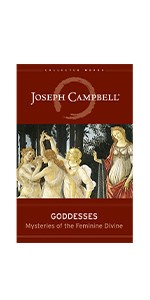
GODDESSES
|
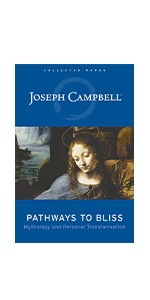
PATHWAYS TO BLISS
|
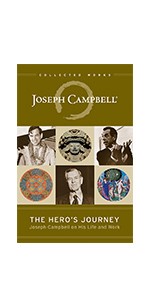
THE HERO’S JOURNEY
|
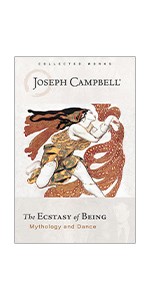
THE ECSTASY OF BEING
|

MYTH AND MEANING
|
|
|---|---|---|---|---|---|
| Customer Reviews |
4.8 out of 5 stars 465
|
4.7 out of 5 stars 588
|
4.6 out of 5 stars 1,228
|
4.7 out of 5 stars 64
|
4.9 out of 5 stars 19
|
| Price | $18.97$18.97 | $13.17$13.17 | $71.38$71.38 | $15.43$15.43 | $19.80$19.80 |
| The Collected Works of Joseph Campbell | Traces the evolution of the Feminine Divine from one Great Goddess to many. | Shows how myth can help each of us truly identify and follow our bliss. | Reveals and illuminates Campbell’s personal and intellectual journey. | Campbell’s writings on dance and art. | A wide-ranging collection of insights from Joseph Campbell |
Editorial Reviews
Review
— Bill Moyers
“In the three decades since I discovered The Hero with a Thousand Faces, it has continued to fascinate and inspire me. Joseph Campbell peers through centuries and shows us that we are all connected by a basic need to hear stories and understand ourselves. As a book, it is wonderful to read; as illumination into the human condition, it is a revelation.”
— George Lucas
“Campbell’s words carry extraordinary weight, not only among scholars but among a wide range of other people who find his search down mythological pathways relevant to their lives today....The book for which he is most famous, The Hero with a Thousand Faces [is] a brilliant examination, through ancient hero myths, of man’s eternal struggle for identity.”
— Time
“In the long run, the most influential book of the twentieth century may turn out to be Joseph Campbell’s The Hero with a Thousand Faces.”
— Christopher Vogler
"Watching [Campbell] perform these staggering acts of synthesis—he’ll toss together, say, Jungian archetype, Sumerian mythology, the Roman Apuleius, shamanism and Lancelot into the space of a few pages—is breathtaking.”
— Anthony Doerr
Product details
- Publisher : New World Library
- Publication date : July 28, 2008
- Edition : Second
- Language : English
- Print length : 432 pages
- ISBN-10 : 1577315936
- ISBN-13 : 978-1577315933
- Item Weight : 2.31 pounds
- Dimensions : 5.6 x 1.4 x 8.6 inches
- Part of series : The Collected Works of Joseph Campbell
- Best Sellers Rank: #3,766 in Books (See Top 100 in Books)
- Customer Reviews:
Videos
Videos for this product

0:41
Click to play video
 The Hero with a Thousand Faces (The Collected Works of Joseph Campbell)
The Hero with a Thousand Faces (The Collected Works of Joseph Campbell)Amazon Videos
About the author

Joseph Campbell (1904–1987) was an American author and teacher best known for his work in the field of comparative mythology. He was born in New York City in 1904, and from early childhood he became interested in mythology. He loved to read books about American Indian cultures, and frequently visited the American Museum of Natural History in New York, where he was fascinated by the museum's collection of totem poles. Campbell was educated at Columbia University, where he specialized in medieval literature, and continued his studies at universities in Paris and Munich. While abroad he was influenced by the art of Pablo Picasso and Henri Matisse, the novels of James Joyce and Thomas Mann, and the psychological studies of Sigmund Freud and Carl Jung. These encounters led to Campbell's theory that all myths and epics are linked in the human psyche, and that they are cultural manifestations of the universal need to explain social, cosmological, and spiritual realities.
After a period in California, where he encountered John Steinbeck and the biologist Ed Ricketts, he taught at the Canterbury School, and then, in 1934, joined the literature department at Sarah Lawrence College, a post he retained for many years. During the 40s and '50s, he helped Swami Nikhilananda to translate the Upanishads and The Gospel of Sri Ramakrishna. He also edited works by the German scholar Heinrich Zimmer on Indian art, myths, and philosophy. In 1944, with Henry Morton Robinson, Campbell published A Skeleton Key to Finnegans Wake. His first original work, The Hero with a Thousand Faces, came out in 1949 and was immediately well received; in time, it became acclaimed as a classic. In this study of the "myth of the hero," Campbell asserted that there is a single pattern of heroic journey and that all cultures share this essential pattern in their various heroic myths. In his book he also outlined the basic conditions, stages, and results of the archetypal hero's journey.
Throughout his life, he traveled extensively and wrote prolifically, authoring many books, including the four-volume series The Masks of God, Myths to Live By, The Inner Reaches of Outer Space and The Historical Atlas of World Mythology. Joseph Campbell died in 1987. In 1988, a series of television interviews with Bill Moyers, The Power of Myth, introduced Campbell's views to millions of people.
For more on Joseph Campbell and his work, visit the web site of Joseph Campbell Foundation at JCF.org.
Customer reviews
Customer Reviews, including Product Star Ratings help customers to learn more about the product and decide whether it is the right product for them.
To calculate the overall star rating and percentage breakdown by star, we don’t use a simple average. Instead, our system considers things like how recent a review is and if the reviewer bought the item on Amazon. It also analyzed reviews to verify trustworthiness.
Learn more how customers reviews work on AmazonCustomers say
Customers find this book to be a fascinating and rewarding read, particularly valuable for aspiring writers, with one noting it's well worth the investment of time and study. Moreover, they appreciate its comprehensive exploration of mythology through compelling excerpts from folk tales, and its straightforward approach to character development. However, the book receives mixed feedback regarding its density, with several customers describing it as extremely dense.
AI-generated from the text of customer reviews
Customers find the book fascinating and brilliant, particularly noting it as a must-read for aspiring writers. One customer mentions it is well worth the investment of time and study.
"...In this seminal work of comparative mythology, renowned author and professor of literature Joseph Campbell points to the universal motifs pervading..." Read more
"...Finally, Campbell's introductory chapter is beautifully written and poetic, as he describes how these myths can illuminate and illustrate our own..." Read more
"...to track this story-telling process in so many cultures is also pretty neat, and shows how universal human nature seems to be, even when it comes to..." Read more
"...Although Campbell's research and evidence he presents is valid and compelling, the intellectual manner in which he presents it, may be confusing to..." Read more
Customers find the book insightful and informative, describing it as a phenomenal piece of research, with one customer noting its well-researched philosophical background.
"...It contains a lot of good information." Read more
"...More importantly, however, Campbell reveals with profound depth of insight why these diverse stories can be so convincingly compounded...." Read more
"...scope of material at hand, Campbell offers readers a well-curated overview of various traditional depictions of the quintessential hero...." Read more
"...The book contains endnotes, footnotes, an index and a bibliography divided in four parts: his main bibliography, editions of sacred texts he cited,..." Read more
Customers appreciate the book's exploration of mythology, noting it contains compelling excerpts from folk tales and provides perceptive insights into stories. One customer mentions it explains almost all fiction ever written, while another notes it pairs well with The Power of Myth.
"...on this book is as follows: If you’re a student of religion, mythology or philosophy, or if you are a writer (whether of music, poetry, or fiction),..." Read more
"...This text is a must-read for those interested in mythology, folklore, and cultural anthropology." Read more
"...explored is the monomyth of the hero’s journey: such a compelling outline of popular tales throughout the ages that it has inspired modern stories..." Read more
"...In this “composite adventure,” as he calls it, the author relates “the tales of a number of the world’s symbolic carriers of the destiny of Everyman...." Read more
Customers appreciate the author's straightforward writing style, with one customer noting it is carefully prepared by a knowledgeable editor, while others find it very complex.
"..."The Hero with a Thousand Faces," is written in a very straightforward and scholarly style...." Read more
"...This new edition has been carefully prepared by a knowledgeable editor and includes a rich biography...." Read more
"...The hardback is worth the price, effort, and wait time (hard backs do not, unfortunately arrive in your kindle or kindle app within a minute or two)...." Read more
"...I have not finished it yet, but so far is incredible. Very complex, you must have at least a background in psychology, antropology, mythology and..." Read more
Customers find the book to be a great value, with one mentioning it's worth all the time invested.
"...That fact is worth the price of the book alone...." Read more
"It was written in throughout but no big deal for the price. I can read it and now I have a copy of a classic!" Read more
"...If you are a writer, then this is a must have. The hardback is worth the price, effort, and wait time..." Read more
"...times, and gaining that new perspective alone has been worth the price of the book." Read more
Customers appreciate the book's character development, particularly how it explores different heroes and their psychology, and serves as a great tool for character creation.
"...Famously, he determines specific characteristics about the hero and his or her journey, hence the term (coined by Campbell) familiar to readers and..." Read more
"The book is good and full of examples of heros with a thousand faces...." Read more
"...There's even information on the stories of religious heroes in here...." Read more
"...It has been mentioned that this can help with character development in writing. I couldn't read it...." Read more
Customers find the book extremely dense.
"...It is dense and not for those lacking in perseverance, but such a treasure trove of material is packed into one book...." Read more
"A bit too dense and discursive for me...." Read more
"...A true work of genius! It is definitely academic and dense so I had to take in in in digestible chunks, but it is a book I will be returning to..." Read more
"It is dense as most of his work is. It needs to be read when you can concentrate and digest is messages." Read more
Reviews with images
Perfect
Top reviews from the United States
There was a problem filtering reviews. Please reload the page.
- Reviewed in the United States on May 4, 2025One of the best
- Reviewed in the United States on April 19, 2018All the way back in 1949, Joseph Campbell wrote a book titled The Hero With a Thousand Faces. The book contains hundreds of examples of stories from a wide range of mythology, including those from Buddhist, Hindu, Christian, Native American, and Greek (and countless other) canons.
Campbell identifies similarities in style as well as structure between the great adventure stories/mythologies throughout human history. Famously, he determines specific characteristics about the hero and his or her journey, hence the term (coined by Campbell) familiar to readers and writers alike, The Hero’s Journey. In effect, there is a very specific set of rules governing what makes a great story. And just in case I wasn’t certain of the extent of Campbell’s research, the book contains over forty pages of endnotes and other references. The man put in the research time.
Reading The Hero With a Thousand Faces came at the perfect time for me. I’d heard of it and seen it recommended to me on Amazon for quite some time, but I never took the time to actually read it. Actually, I “Wikipedia’d” it a few times, but that was the extent of that. But in finally reading the book, Campbell has helped me understand much better some of the ideas that I’ve been working out in my weekly “Books of the Bible” review posts. If you’ve read any of my recent Bible book reviews, you’ll immediately recognize that Campbell has already clearly written what I’m still trying to figure out for myself. For example:
“For the symbols of mythology are not manufactured; they cannot be ordered, invented or permanently suppressed. They are spontaneous productions of the psyche…”
Powerful stuff.
Here are the rules governing the first great stage of the adventure story (some of it is paraphrased in my own words):
The Call to Adventure
Initial Refusal to Heed the Call
Supernatural Aid/Mentor/“Old Man” (Old man is a direct quote from Campbell.)
Crossing the First Threshold
Belly of the Whale (The Point When the Hero’s Death/Ultimate Failure seems Certain)
Truly, Exodus would have been the perfect story to compare with Campbell’s ruleset, but I just wrote a review of Exodus last week, so I wanted to do something different. The Karate Kid might just might be the most perfect modern example of them all (and one of my favorite movies). So I thought it might be interesting to see just how closely the writers of this movie follow Campbell’s rules.
Young New Jersey native Daniel is called to the great land of adventure (California) by his mother. He hates it there (his initial macro-reluctance to heed the call) and would like nothing more than to move back home. The only saving grace (besides a pretty girl) is a mentor (Mr. Myagi) that he meets when he arrives. After getting into some trouble with the local bullies, Daniel’s mentor signs him up for a karate tournament. Daniel is mortified and has no faith in his ability to survive a karate tournament like that (Micro-reluctance to Heed the Call), “I cannot believe… what you got me into back there!”
But Daniel does as his mentor says and enters the tournament anyway (Crossing the First Threshold), where he manages to make it to the semifinals, further than he ever dreamed, before even hitting a snag. When he gets there, young bully Bobby cheats in a most despicable manner, kicking Daniel directly in the knee, damaging Daniel’s body seemingly beyond repair (into the Belly of the Whale, i.e., Daniel’s ultimate defeat seems certain). But just as soon as all hope is lost, Daniel’s mentor heals his leg through supernatural methods and Daniel comes back to win the tournament, his dignity, and the girl. Indeed, it’s a Hero’s Journey almost worthy of Moses.
Note: There are other rules and further stages to the story that I haven’t included in this short review, but it seems to me that these are certainly the essential components to the modern story. Maybe some other time, I can write about the further stages and which stories they apply to (Lord of the Rings comes to mind).
My final say on this book is as follows: If you’re a student of religion, mythology or philosophy, or if you are a writer (whether of music, poetry, or fiction), read this book. It contains a lot of good information.
- Reviewed in the United States on February 26, 2021In his 1949 book, “The Hero with a Thousand Faces,” literary scholar and cultural anthropologist Joseph Campbell outlines his theory of the monomyth through a comparative study of world mythology and folklore using psychological and anthropological methods. In his original preface, Campbell writes, “There are of course differences between the numerous mythologies and religions of mankind, but this is a book about the similarities; and once these are understood the differences will be found to be much less great than is popularly (and politically) supposed” (pg. xiii). He hoped that such a study would help those seeking to support unification and “human mutual understanding” in the immediate postwar and early Cold War years.
Describing the role of mythology in societies across time, Campbell writes, “It has always been the prime function of mythology and rite to supply the symbols that carry the human spirit forward, in counteraction to those constant human fantasies that tend to tie it back” (pg. 7). He continues, “The archetypes to be discovered and assimilated are precisely those that have inspired, throughout the annals of human culture, the basic images of ritual, mythology, and vision” (pg. 14). Laying out the structure of the monomyth – and the hero’s journey – Campbell writes, “A hero ventures forth from the world of common day into a region of supernatural wonder: fabulous forces are there encountered and a decisive victory is won: the hero comes back from this mysterious adventure with the power to bestow boons on his fellow man” (pg. 23). Campbell continues, “There will be found astonishingly little variation in the morphology of the adventure, the character roles involved, the victories gained. If one or another of the basic elements of the archetypal pattern is omitted from a given fairy tale, legend, ritual, or myth, it is bound to be somehow or other implied – and the omission itself can speak volumes for the history and pathology of the example” (pg. 30). In addition to summarizing elements of mythology and folklore from throughout the world, Campbell draws upon Freud, Jung, and psychoanalysis in his examination of the tropes common to the hero’s journey. Though these theories no longer play a large role in contemporary psychology, English and literature scholars continue to draw upon them even now.
Even those unfamiliar with “The Hero with a Thousand Faces” will find the text familiar. Campbell’s work has influenced several storytellers from the mid-twentieth century onward, with George Lucas as the most notable. According to journalist Bill Moyers, Joseph Campbell said that “the best student he ever had was George Lucas.” Elements of the monomyth run through “Star Wars” for those looking at the story structure. This text is a must-read for those interested in mythology, folklore, and cultural anthropology.
Top reviews from other countries
 NReviewed in the Netherlands on November 7, 2024
NReviewed in the Netherlands on November 7, 20245.0 out of 5 stars great book
awesome
 BernardoReviewed in Spain on July 8, 2023
BernardoReviewed in Spain on July 8, 20235.0 out of 5 stars A must read
A must read. I recommend it as a storyteller and as a person who enjoys reading.
 V-rockReviewed in India on January 28, 2024
V-rockReviewed in India on January 28, 20245.0 out of 5 stars Brilliant
As all his works, this was just as brilliant a read as his Power Of Myth series
 Lau♡Reviewed in Mexico on December 1, 2024
Lau♡Reviewed in Mexico on December 1, 20245.0 out of 5 stars Excelente producto 👍🏼
Excelente producto 👍🏼
 Marc JohnReviewed in the United Kingdom on August 9, 2006
Marc JohnReviewed in the United Kingdom on August 9, 20065.0 out of 5 stars A work of pure genius!
The key to understanding this classic book, and getting the most from it, is to realise that it's actually all about YOU. Campbell wrote it for YOU. Just think about the title for a start. YOU are the hero and your hero's journey is all about finding your inner life, your divine spark, and being engulfed and re-born out of it. This is what all the world's great hero myths were really talking about, symbolically, and Campbell brilliantly draws together the universal themes and parallels running through all the world's mystical and religious traditions, all of which were concerned (when understood metaphorically instead of literally) with this marvellous "death and resurrection" of the human psyche - from human animal to divine incarnation. It's a heroic deed which we all have the potential to achieve, and this book vibrantly and beautifully recollects many anicent stories that have drawn Mankind's imagination toward this very real transformation, through the use of the oldest and best means at our disposal - symbolic storytelling. This book is not just for the student or teacher of mythology or comparative religion, it's for everyone on the spiritual path. In fact, this book speaks directly to you wherever you are right now in life, whether on that path or not. Simply brilliant, and possibly the most important book of the 20th century. Even the full five star rating is not enough!








